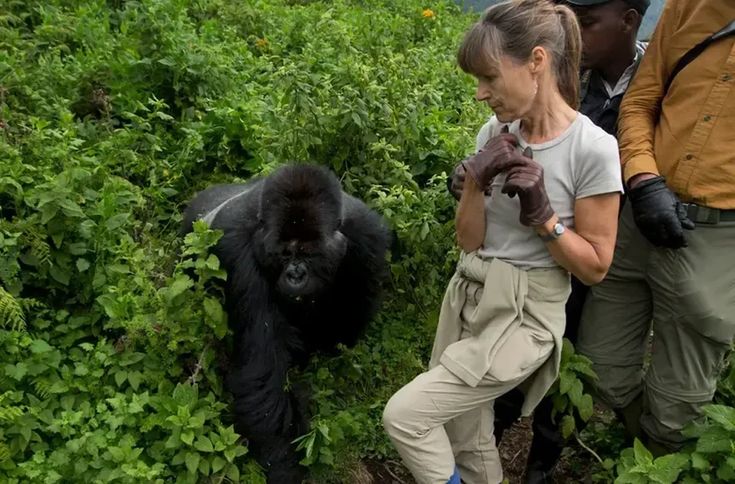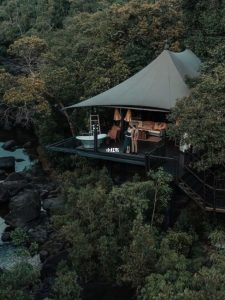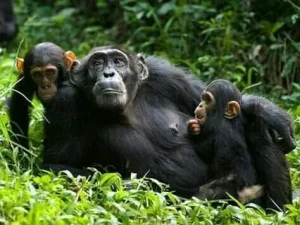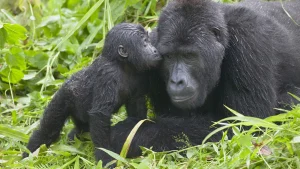Types of Travelers Who Visit Uganda
Types of Travelers Who Visit Uganda. Uganda is an incredible destination known for its stunning natural landscapes, diverse wildlife, and rich cultural heritage. It attracts a variety of travelers who come for adventure, wildlife, culture, relaxation, and conservation. Here’s a closer look at the main types of travelers who explore Uganda:
1. Wildlife and Nature Enthusiasts
- Gorilla Trekking: One of Uganda’s most unique attractions is the chance to see mountain gorillas in their natural habitat. Bwindi Impenetrable National Park and Mgahinga Gorilla National Park are among the few places where travelers can encounter these gentle giants up close, making it a major draw for nature lovers.
- Birdwatchers: Uganda is home to over 1,000 bird species, attracting birdwatchers from all over the world. Hotspots include Queen Elizabeth National Park, Mabamba Swamp (where the rare shoebill stork can be seen), and Lake Mburo National Park.
- Safari Seekers: Many come to Uganda for traditional African safaris, as the country is known for its big game, including lions, elephants, and buffalo. Queen Elizabeth, Murchison Falls, and Kidepo Valley National Parks offer great opportunities for classic safari experiences.
2. Adventure Travelers
- Mountain Climbers and Hikers: The Rwenzori Mountains, also known as the “Mountains of the Moon,” attract climbers looking for challenging hikes and scenic views. For those seeking moderate hikes, Mount Elgon offers scenic trails and waterfalls at a lower elevation.
- Whitewater Rafters and Kayakers: The Nile River, particularly in Jinja, is famous for whitewater rafting and kayaking, offering adrenaline-pumping rapids for thrill-seekers. Bungee jumping and quad biking are also available in this adventure hub.
- Biking Enthusiasts: Uganda’s varied landscapes offer beautiful mountain biking routes, especially around Lake Bunyonyi and the trails near Bwindi. These routes provide scenic views and an adventurous way to explore Uganda’s countryside.
3. Eco-tourists and Conservation-minded Travelers
- Conservation-focused Tourism: Many travelers visit Uganda to support conservation efforts. Gorilla and chimpanzee trekking permits contribute to conservation funding, and the Uganda Wildlife Education Center offers learning opportunities about the importance of protecting local wildlife.
- Community-based Tourism: Eco-conscious travelers enjoy visiting villages and participating in community-run tourism initiatives. These experiences support the local economy and allow travelers to see sustainable farming and crafts made by local artisans.
4. Cultural Explorers
- Cultural Tours and Homestays: Many travelers seek authentic Ugandan experiences, staying with local families or visiting cultural sites. Village visits, like those with the Batwa and Bakiga communities, offer insight into traditional dances, farming practices, and daily life.
- Historical Sites: Uganda has numerous historical landmarks, such as the Kasubi Tombs in Kampala and the Nyero rock paintings. These sites appeal to travelers interested in anthropology, history, and Ugandan heritage.
5. Luxury and Leisure Travelers
- Upscale Lodges and Retreats: Uganda offers several high-end lodges and resorts, especially near major attractions like Lake Bunyonyi, Lake Mutanda, and Bwindi. These places offer fine dining, spa services, and luxurious amenities in tranquil settings.
- Wellness and Relaxation: Some travelers come for wellness retreats or to relax in nature. Eco-friendly resorts around Uganda provide wellness activities, like yoga sessions and guided meditation in scenic lake and forest settings.
6. Photographers and Filmmakers
- Landscape Photography: With dramatic mountains, mirror-like lakes, and mist-covered forests, Uganda’s natural beauty attracts photographers. Bwindi and the Rwenzori Mountains offer breathtaking landscape photography opportunities.
- Wildlife and Cultural Photography: Uganda’s wildlife-rich parks are ideal for capturing big game, unique birds, and primates. Cultural photographers can also capture vibrant local markets, traditional dances, and everyday life in Uganda’s towns and villages.
7. Volunteers and Researchers
- Wildlife and Conservation Research: Uganda’s biodiversity attracts researchers studying everything from primates to plant species. Kibale Forest is a popular center for primate research, while Bwindi supports conservation studies focused on gorillas and their ecosystems.
- Volunteer Programs: There are various volunteer opportunities in conservation, education, healthcare, and community development. Volunteering allows travelers to contribute to local projects while gaining a deeper understanding of Ugandan culture and lifestyle.
8. Backpackers and Budget Travelers
- Affordable Accommodations: Backpackers enjoy Uganda’s budget-friendly lodges, community guesthouses, and hostels, making it an ideal destination for those traveling on a budget.
- Public Transportation and Local Experiences: Uganda’s affordable public transportation allows budget travelers to explore both popular attractions and off-the-beaten-path locations, such as hidden waterfalls, local food markets, and scenic lakes.
9. Family Travelers and Educational Groups
- Family-friendly Safaris and Activities: Uganda offers several family-friendly safaris and cultural tours. Queen Elizabeth and Murchison Falls National Parks have options suited for families with children.
- Educational Tours and Field Studies: Schools and universities often organize trips to Uganda for students to study its ecosystems, wildlife, and cultural diversity. These educational programs include conservation projects, field research, and guided learning experiences.
Types of Travelers Who Visit Uganda. Uganda’s unique offerings make it a fantastic destination for all types of travelers, from adventure seekers and wildlife enthusiasts to those who simply want to unwind in nature. Each visitor type has something memorable to experience, whether it’s exploring local culture, embarking on safari, or simply taking in Uganda’s natural beauty.




